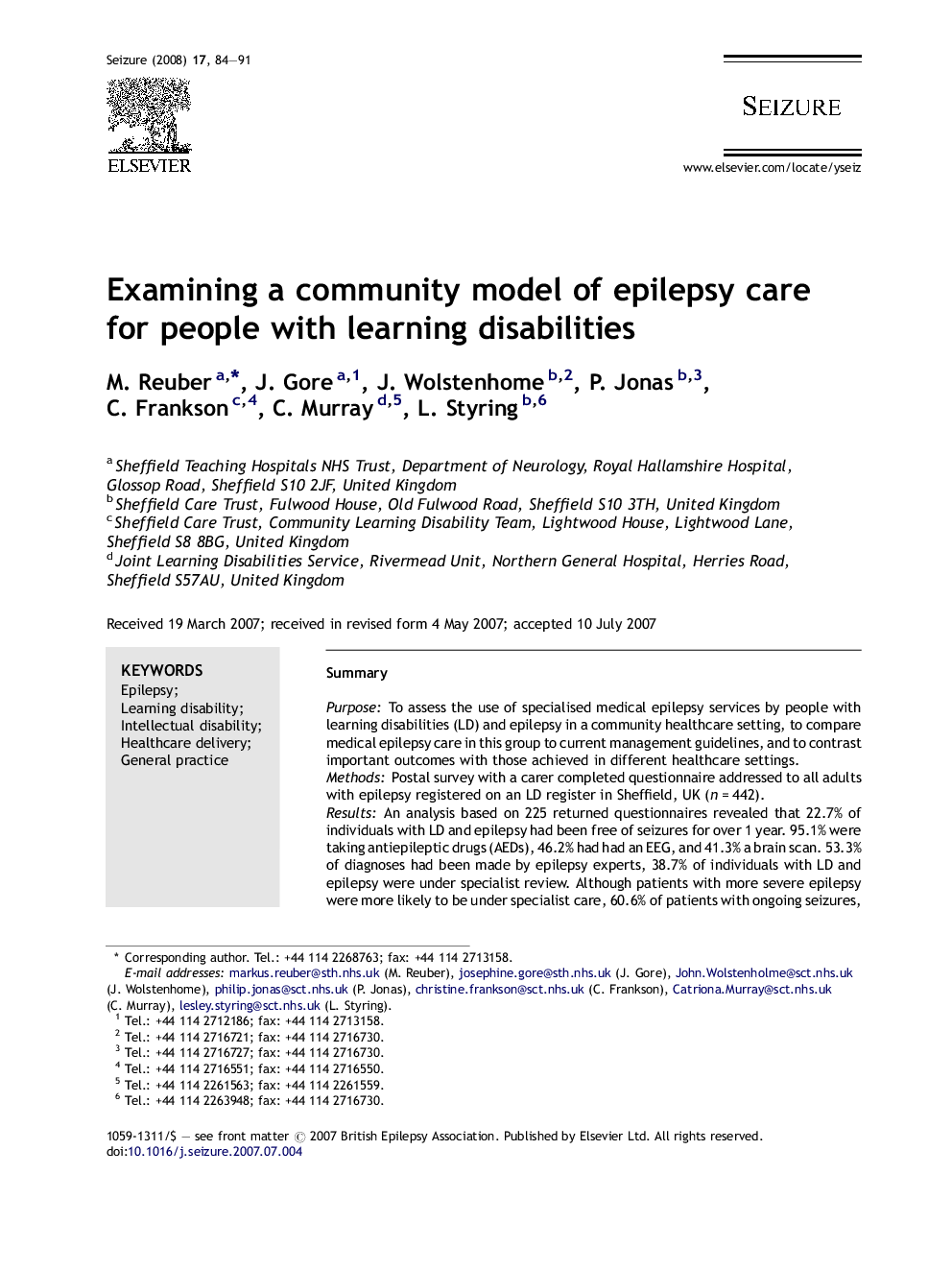| Article ID | Journal | Published Year | Pages | File Type |
|---|---|---|---|---|
| 340853 | Seizure | 2008 | 8 Pages |
SummaryPurposeTo assess the use of specialised medical epilepsy services by people with learning disabilities (LD) and epilepsy in a community healthcare setting, to compare medical epilepsy care in this group to current management guidelines, and to contrast important outcomes with those achieved in different healthcare settings.MethodsPostal survey with a carer completed questionnaire addressed to all adults with epilepsy registered on an LD register in Sheffield, UK (n = 442).ResultsAn analysis based on 225 returned questionnaires revealed that 22.7% of individuals with LD and epilepsy had been free of seizures for over 1 year. 95.1% were taking antiepileptic drugs (AEDs), 46.2% had had an EEG, and 41.3% a brain scan. 53.3% of diagnoses had been made by epilepsy experts, 38.7% of individuals with LD and epilepsy were under specialist review. Although patients with more severe epilepsy were more likely to be under specialist care, 60.6% of patients with ongoing seizures, 57.9% with major seizures and 68.7% of individuals taken to hospital with prolonged had no access to specialist advice.ConclusionThe proportion of people with LD who achieved seizure-control in the described population was lower than in all previously reported studies of LD patient groups. The poor outcome in terms of seizure-control, the lack of access to the epilepsy specialist service, and the apparent under-utilisation of investigations indicate that there are grounds for serious concern about this community model of medical epilepsy care for people with LD.
